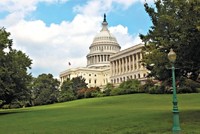Advertisement
Grab your lab coat. Let's get started
Welcome!
Welcome!
Create an account below to get 6 C&EN articles per month, receive newsletters and more - all free.
It seems this is your first time logging in online. Please enter the following information to continue.
As an ACS member you automatically get access to this site. All we need is few more details to create your reading experience.
Not you? Sign in with a different account.
Not you? Sign in with a different account.
ERROR 1
ERROR 1
ERROR 2
ERROR 2
ERROR 2
ERROR 2
ERROR 2
Password and Confirm password must match.
If you have an ACS member number, please enter it here so we can link this account to your membership. (optional)
ERROR 2
ACS values your privacy. By submitting your information, you are gaining access to C&EN and subscribing to our weekly newsletter. We use the information you provide to make your reading experience better, and we will never sell your data to third party members.
Environment
Setting Sites On Sustainability
ACS News: Chemical societies’ websites focus on global environmental challenges
by Stu Borman
August 16, 2010
| A version of this story appeared in
Volume 88, Issue 33

Sister websites developed by the American Chemical Society and the Royal Society of Chemistry will help chemists and the general public learn more about key global challenges related to sustainability, such as ensuring adequate food supplies, safeguarding drinking water, and developing new energy sources.
The sites are the first fruit of several joint efforts planned under a cooperative memorandum of understanding signed by ACS and RSC last year (C&EN, Nov. 16, 2009, page 8). In the agreement, the societies pledged to work together to promote sustainability of water, food, energy, and other resources.
The websites—www.acs.org/acsrscalliance and rsc.org/scienceandtechnology/roadmap/acsrsc.asp—answer the memorandum’s call for development of a primer on sustainability. They are based on sustainability sites the organizations created earlier, but they have been extensively redesigned and now include content from both societies. For example, a section on energy on both sites includes links to ACS and RSC documents and webpages on energy conversion, solar and nuclear energy, reducing greenhouse gas emissions, biofuels, and related topics.
The two websites differ in some key respects. For instance, “Global Challenges/Chemistry Solutions,” a continuing series of podcasts on chemical solutions to global challenges, is accessible from the ACS site. And a link to Chemistry for Tomorrow’s World, a website with additional information on the role of chemistry in sustainability, can be found on the RSC site.
The sister websites’ aim is “to create greater awareness among the public of various issues related to sustainability,” says Glenn S. Ruskin, director of ACS’s Office of Public Affairs. Their content will be updated regularly to keep pace with scientific advances and policy developments.
Other ACS-RSC alliance projects are still in the planning stages. For instance, a trans-Atlantic workshop on sustainability might be held in November in Washington, D.C. U.K. Chief Scientific Adviser Sir John Beddington, White House Office of Science & Technology Policy Director John P. Holdren, and other government and nongovernment scientists and officials have been invited to the session.
The memorandum, Ruskin says, also pledges ACS and RSC to “help our members be more effective communicators and advocates on sustainability and other global challenges” in a manner that’s easily accessible to the general public.
The ACS site notes that “the challenges of sustainability won’t be solved by a single organization or country” and that “international collaboration is needed to move our world toward a sustainable future”—ideas the sister websites are designed to advance.




Join the conversation
Contact the reporter
Submit a Letter to the Editor for publication
Engage with us on Twitter